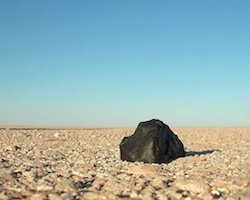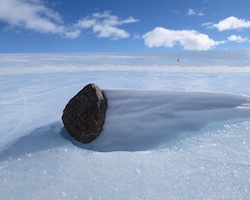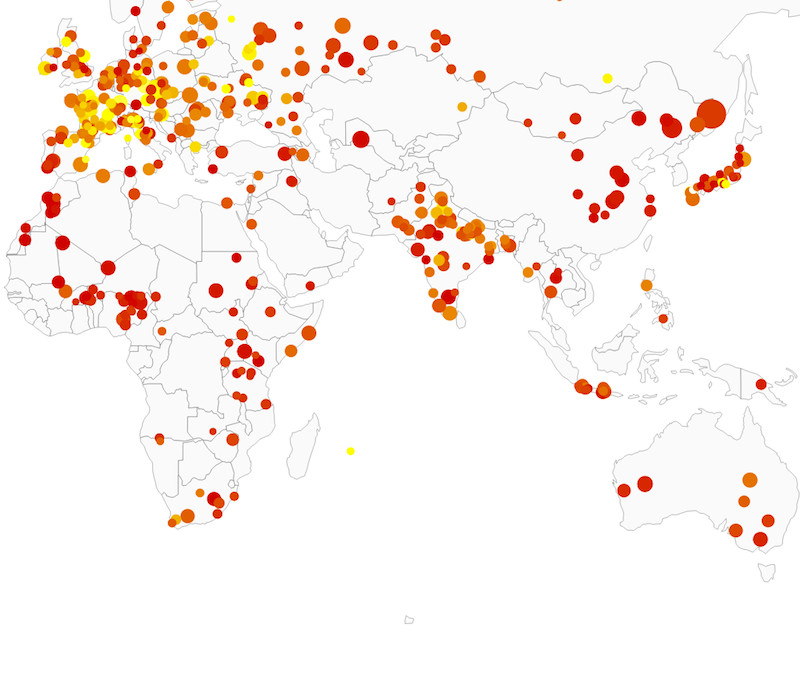
Where can you find meteorites?
 It is a cool, sunny morning with bright, cloudless skies. Perfect for a nice little hike in the desert. You put on your hiking shoes and hat, pack a delicious sandwich and lots of water, and head out to the trail. You walk past the many cacti and shrubs, trail signs, cute dogs, brown rocks, and a very, very dark rock…. Wait, a very, very dark rock that looks different from the usual brown rocks. Your heart skips a beat! Could it be what you think it is?
It is a cool, sunny morning with bright, cloudless skies. Perfect for a nice little hike in the desert. You put on your hiking shoes and hat, pack a delicious sandwich and lots of water, and head out to the trail. You walk past the many cacti and shrubs, trail signs, cute dogs, brown rocks, and a very, very dark rock…. Wait, a very, very dark rock that looks different from the usual brown rocks. Your heart skips a beat! Could it be what you think it is?
A meteorite can land anywhere on the Earth’s surface, even in its vast oceans. But there are some places where it is easier to spot a meteorite. Some of the best places to find meteorites are dry and barren lands. Such places do not have much vegetation or forest cover to conceal the meteorite, and they don’t have much rain which would either wash or wear away the meteorite.
 The top meteorite hunting places include Antarctica, the desert in the northwest region of the African continent, and the American Southwest. Antarctica is particularly cool (pun intended) because it is a desert of snow and ice, and a dark, weird looking rock from space would be easy to spot.
The top meteorite hunting places include Antarctica, the desert in the northwest region of the African continent, and the American Southwest. Antarctica is particularly cool (pun intended) because it is a desert of snow and ice, and a dark, weird looking rock from space would be easy to spot.
So the next time you are hiking in the desert or visiting Antarctica, watch out for a rock that might be a meteorite. How can you pick out a meteorite from all the other rocks? There is a way.
Additional images via Wikimedia Commons. Image of meteorite map taken from https://roadtolarissa.com/meteors

Where in the world have these treasures been found, along with their secrets? Check out this interactive map showing meteorite finds from the last 500 years.
Be Part of
Ask An Earth and
Space Scientist
By volunteering, or simply sending us feedback on the site. Scientists, teachers, writers, illustrators, and translators are all important to the program. If you are interested in helping with the website we have a volunteers page to get the process started.
